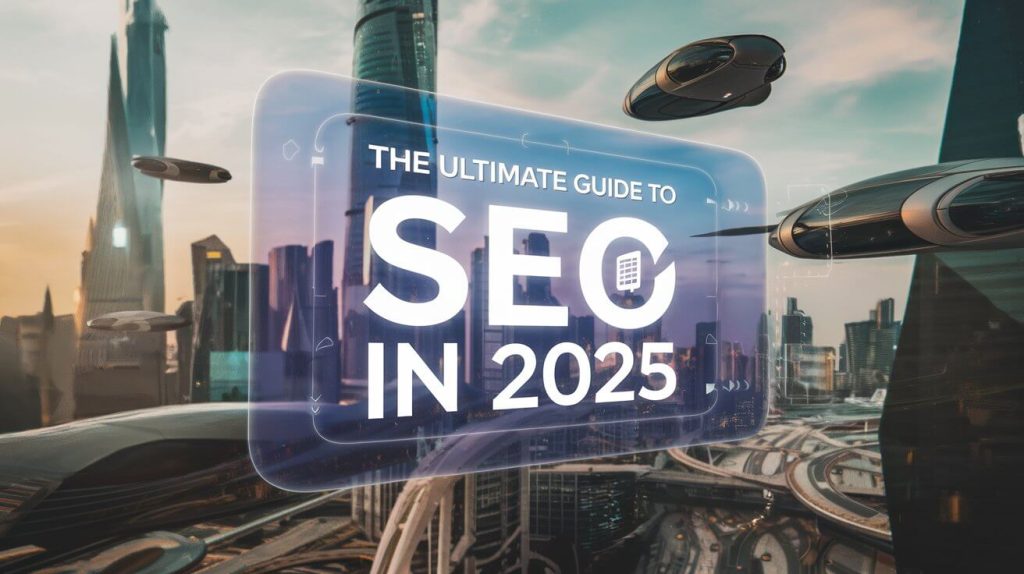SEO is changing faster than ever, and 2025 is bringing new challenges and opportunities for brands, creators, and marketers. To stay ahead, it’s important to understand these trends and adjust your strategies. Here’s a detailed guide to the top SEO trends for 2025, ranked from most to least important.

1. Brands Dominate Search (Even More)
Google is increasingly favoring established brands. Metrics like brand search volume, trust signals, and user behavior data are key indicators of authority. This means smaller websites or startups will find it harder to rank against well-known names.
How to Adapt:
- Invest in Brand Building: Use social media, PR campaigns, and thought leadership to build brand awareness.
- Leverage Multichannel Marketing: Build your presence across platforms like YouTube, email, and podcasts to make your brand ubiquitous.
- Focus on E-A-T (Expertise, Authoritativeness, Trustworthiness): Create authoritative content and collaborate with industry experts to boost credibility.
2. Traffic Diversity Is Essential
Relying solely on organic search traffic is riskier than ever. Algorithm updates and increasing SERP competition can leave you vulnerable.
How to Adapt:
- Expand Your Reach: Use paid advertising (PPC), YouTube, social media, and email marketing.
- Build an Ecosystem: Ensure your audience can find you on multiple platforms. For example, grow a YouTube channel that complements your blog or drive email signups from your content.
- Invest in Evergreen Strategies: Email marketing and direct traffic channels offer stability, even during algorithm shakeups.
3. User Signals Are Critical
User behavior metrics like goal completion rates, reduced pogo-sticking, and click-through rates (CTR) are more influential than ever.
How to Adapt:
- Optimize for Engagement: Write compelling meta titles and descriptions that drive clicks.
- Streamline UX: Improve page load speed, mobile usability, and navigation to reduce bounce rates.
- Focus on Goal Completion: Guide users to complete valuable actions, such as filling out forms, downloading content, or making a purchase.
4. Links Matter More in an AI-Driven World
With the flood of AI-generated content, backlinks remain a vital signal of quality and authority. Search engines will lean on links to differentiate credible content from generic AI output.
How to Adapt:
- Prioritize Quality Over Quantity: Aim for links from high-authority sites, even if they’re harder to acquire.
- Build Relationships: Collaborate with industry peers for guest posts, co-marketing efforts, and link-sharing opportunities.
- Audit and Refresh: Regularly check for broken links and opportunities to update outdated backlinks.
5. The Rise of AI Search Engines
AI-powered platforms like SearchGPT and tools integrated into voice assistants are reshaping how users interact with search engines.
How to Adapt:
- Optimize for AI Search: Focus on structured data, schema markup, and natural language content to cater to AI-driven queries.
- Be Conversational: AI searches rely heavily on conversational language, so ensure your content mirrors how people speak.
- Monitor Emerging Platforms: Stay ahead by testing and adapting to new AI search engines.
6. AI Overviews Dominate Informational Queries
Google’s AI search overviews are stealing clicks from traditional SERPs. By Q3 2025, informational queries will rely heavily on AI summaries.
How to Adapt:
- Focus on Bottom-Funnel Keywords: Optimize content for transactional and commercial intent where AI is less dominant.
- Boost CRO (Conversion Rate Optimization): Ensure your pages capture leads or sales quickly when users do arrive.
- Create Unique Angles: Offer in-depth, nuanced insights that AI overviews can’t replicate.
7. Content Scalability Evolves
AI is revolutionizing content creation by enabling marketers to scale quickly, identify new topics, and refresh old articles.
How to Adapt:
- Adopt AI Tools: Use AI for brainstorming topics, updating older content, and identifying gaps in your strategy.
- Maintain Quality Control: While AI helps with production, ensure that humans review and enhance the content.
- Refresh Regularly: Use AI to analyze performance metrics and update content for better ranking potential.
8. Fewer Competitors = Bigger Rewards
As Google’s updates make SEO more challenging, many websites are exiting the competition. This leaves more room for those who adapt.
How to Adapt:
- Embrace Change: Stay informed about algorithm updates and adapt swiftly.
- Double Down on What Works: Identify your most successful strategies and scale them.
- Take Advantage of Reduced Competition: Target high-value niches where competitors are dropping out.
9. Affiliate SEOs Diversify
Affiliate marketers are finding more success in ecommerce and local lead generation than in traditional affiliate strategies.
How to Adapt:
- Explore Ecommerce: Set up an online store or experiment with dropshipping.
- Target Local Markets: Optimize for local SEO to attract nearby leads.
- Create Value-Driven Funnels: Provide solutions tailored to customer needs to increase conversions.
10. Small Publishers Struggle
With the rise of AI content and big brands dominating the SERPs, small publishers relying on display ads or affiliate links face tough times.
How to Adapt:
- Diversify Revenue Streams: Explore ecommerce, lead generation, and subscription models.
- Focus on Niche Audiences: Serve a specific audience with tailored, high-value content.
- Use AI to Compete: Leverage AI tools to produce content faster and more efficiently.
11. AI Content Thrives
Google has grown comfortable with high-quality AI-generated content, rewarding well-optimized pieces regardless of origin.
How to Adapt:
- Invest in AI Writing: Use tools like ChatGPT or Jasper to scale content production.
- Combine AI with Human Touch: Let AI handle drafts while humans refine and personalize content.
- Focus on Quality: Ensure your content stands out through depth, visuals, and actionable insights.
Conclusion: Winning the SEO Game in 2025
SEO in 2025 demands a combination of adaptability, strategic planning, and a willingness to embrace new technologies. Here’s a quick recap:
- Build a recognizable, authoritative brand.
- Diversify your traffic sources to reduce risk.
- Focus on user engagement and goal completion signals.
- Embrace AI tools for scalable, efficient content creation.
- Stay informed about emerging platforms and trends.
What’s your take on these trends? Are you ready to level up your SEO strategy for 2025? Share your thoughts or questions below—we’d love to hear from you!
